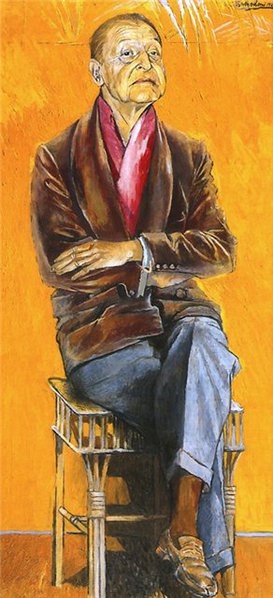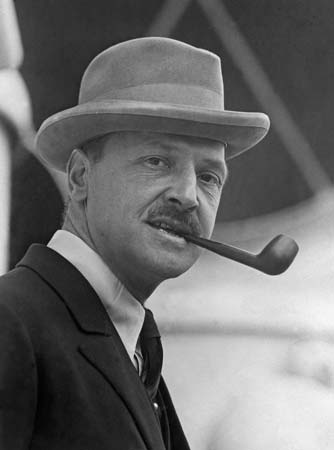What in the long run has the writer to give?
 Somerset Maugham
Somerset Maugham
1874-1965
I am re-reading Summing Up by Somerset Maugham, a memoir written in his eighties. (He lived til age 91.) Also his marvelous collection of short stories. For style alone, he commands attention. Here are some excepts from the memoir:
For what in the long run has the writer to give you?
Himself.
A story should have a beginning, middle, and end, and art should communicate.
Flaubert possessed the quality of empathy to feel himself into his characters, think their thoughts and suffer their emotions. He vomited when he was describing the suicide of Emma Bovary.
No one can tell the whole truth about himself.
If you want to get any benefit from experience, you must have an open mind and an interest in human beings.
Reverie is the groundwork of creative imagination. And because make-believe is their reality, they can look upon reality as make-believe.
Every production of an artist should be the expression of an adventure of his soul.
The value of culture is its effect on character. Its use is for life.
I managed to visit a good many places in Germany, at Munich, I saw Ibsen drinking a glass of beer with a scowl on his face reading the paper.
The secret of playwriting is to stick to the point and whenever possible, cut.
Guy de Maupassant submitted whatever he wrote to Flaubert and it was not til he had been writing for some years that Flaubert allowed him to publish his first story.
For the disadvantages and dangers of the author’s calling are offset by an advantage so great as to make all its difficulties, disappointments, and hardships, unimportant. It gives him spiritual freedom…everything is transformed by his power into material and by writing it, he can overcome it. He creates his own values.
I called my novel Beauty from Ashes, but finding this title had been recently used, I chose instead the title of one of the books in Spinoza’s Ethics, and called it Of Human Bondage. It is not an autobiography, but an autobiographical novel, fact and fiction are inextricably mingled; the emotions are my own. And when the book was published, I found myself free forever from those pains and unhappy recollections. I put into it everything I then knew and having at last finished it, prepared to make a new start.
I am like a passenger waiting for his ship. I do not know on which day it will sail., but I am ready to embark at a moment’s notice. When someone offers to lend me a book, I refuse because I may not have time to finish it….I am on the wing. 
- Somerset Maugham, The Summing Up
From the primeval slime .. the story that began with the world is finished abruptly and it looks as though it meant nothing at all. A tale told by an idiot…. An accident of no moment, that might easily not have happened, has consequences that are incalculable. It looks as though blind chance ruled all things. Our smallest actions may affect profoundly the whole lives of people who have nothing to do with us.
Somerset Maugham, Virture, Short Stories, V. 2
For no day is so dead as the day before yesterday.
Somerset Maugham, The Round Dozen, Short Stories 2
Stay Safe & Keep Writing,
Catherine Ann Jones
 The Way of Story
The Way of Story